Alcoa Moving Forward on Icelandic Mega-Project

In a deal worth an estimated US$1 billion, Alcoa Executive Vice President G. John Pizzey, Iceland Minister of Industry Valgerdur Sverrisd?ttir and national power company Landsvirkjun‘s Managing Director Fridrik Sophusson signed a memorandum of understanding in July that will eventually result in a new 290,339-tons-per-year (295,000 metric tons) smelter near Reydarfjordur in eastern Iceland.
The combined investment in the power plant, smelter and associated infrastructure improvements could approach $3 billion, according to published reports. While many have voiced concerns about the environmental effects of the smelter and the accompanying 630-megawatt hydropower facility to be operated by Landsvirkjun, Gallup polling information released just prior to the announcement showed support inching upward for both projects.
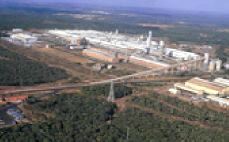 Those concerned about the environmental impact of Alcoa’s planned Iceland project can look to its Alumar alumina
refinery and primary smelting facility in Sao Luis, Brazil,
one of 10 businesses selected for inclusion in a case study
report on fostering sustainable development in developing
countries jointly prepared by the World Business Council for
Sustainable Development (WBCSD) and the United Nations
Industrial Development Organization (UNIDO)
|
|
Site preparation work for the power plant is already under way, as Alcoa aims to have power available for its smelter by early 2007 or sooner. The power project involves damming the glacial river Jokuls? ? Dal at the mountain Fremri-K?rahnj?kur, with two smaller dams helping to create a storage reservoir named H?lsl?n which, when full, will stand 625 m. (2,051 ft.) above sea level and cover some 57 sq. km. (22 sq. miles). The companies have vowed to help establish a protected area near Sn?fell. Part of the agreement also calls for construction of major port facilities at Mj?eyri in Reydarfj?rdur.
“For the first time, a secure base is being established for major energy development and large-scale industry outside the capital city area,” said Bjorn Bjarnason, member of parliament for Reykjavik and the country’s former Minister of Education, Culture and Science.
The news follows on the May announcement by U.S.-based International Pipe and Tube that it will build a $40-million, 17,500-sq.-m. (188,365-sq.-ft.) steel pipe rolling mill in the port city of Helguvik, near North Sea oil exploration activity. That factory is expected to employ 200 when it becomes operational in 2004.

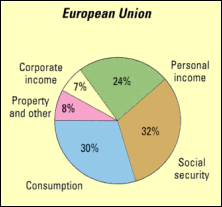
Taxation Snapshot
The graphs below are from Tax and the Economy: A Comparative Assessment of OECD Countries, a 2001 report on taxation issued by the Center for Tax Policy and Administration at the Organization for Economic Cooperation and Development. Of the 30 countries assessed, Mexico had the lowest percentage of estimated total tax revenue as a percentage of GDP in 1999, at 16.5 percent, while Sweden came in highest, at 52.1 percent. Since 1990, Turkey 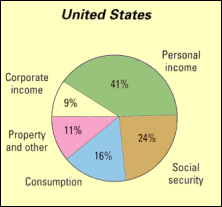 showed the sharpest climb in that statistic, from 20 percent to 31.8 percent, while Ireland, Japan, Mexico, the Netherlands and Sweden showed slight declines. Regarding special economic zones, the report concludes, “Support for investment in depressed areas could be justified on equity grounds, but tax incentives are generally not the most effective way of doing so, as they do not overcome initial location shortcomings. Measures that lower the overall cost of doing business in a certain region, such as infrastructure development or the provision of training facilities, while comparable both in terms of
showed the sharpest climb in that statistic, from 20 percent to 31.8 percent, while Ireland, Japan, Mexico, the Netherlands and Sweden showed slight declines. Regarding special economic zones, the report concludes, “Support for investment in depressed areas could be justified on equity grounds, but tax incentives are generally not the most effective way of doing so, as they do not overcome initial location shortcomings. Measures that lower the overall cost of doing business in a certain region, such as infrastructure development or the provision of training facilities, while comparable both in terms of 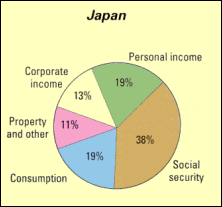 new budget cost and in value for the individual firm, are more transparent and likely to create stronger positive externalities.”
new budget cost and in value for the individual firm, are more transparent and likely to create stronger positive externalities.”

Asian Automotive Momentum Keeps Pace
 Two new projects are the latest steps in a continuous climb by the Asian automotive economy.
Two new projects are the latest steps in a continuous climb by the Asian automotive economy.
DaimlerChrysler has declared that it will enter into an agreement with global partner Mitsubishi to use Thailand as the production base for a new model, in much the same way the Mazda and Ford have done with their AutoAlliance Thailand pickup truck venture in Rayong. Neither DaimlerChrysler nor Mitsubishi executives have named the site for the new small car, although DaimlerChrysler CEO Karl Heinz Heckhausen has said the model would debut in 2004. Mitsubishi’s Thai plant is in Laem Chabang Industrial Estate, and a Mercedes Benz car factory is located in Samut Prakarn, on the Gulf of Thailand south of Bangkok. In December 2001, the two companies announced the construction of a US$239-million small car engine plant in K?lleda, in the German state of Thuringia. That project, backed by $56 million in German and provincial subsidies, will employ 500 people when it is completed by 2004.
Thailand, home to 63 million people, is projected to lead Southeast Asia in car and truck manufacturing by 2006, said an August report issued by Automotive Resources Asia. The new Suvarnabhumi Airport (also known as the Second Bangkok International Airport), a project covering 3,200 hectares (7,907 acres) to the east of the city, is expected to open by the third quarter of 2005, and figures to serve the needs of many companies looking to move people and cargo in and out of Thailand more efficiently.
Toyota Motor Corp. announced in August that it has agreed to establish joint operations with China’s state-owned First Automotive Works, which had just agreed the week before to a 50-50 joint venture with Sichuan Luxing Chechang, a company half-owned by Toyota. Small-model Toyota cars will begin rolling off the line in Tianjin in mid-2003, as will SUVs. Plans call for a rollout of luxury sedans in 2005, from a plant in Changchun.

Toyota joins the growing list of Chinese production sites for major OEMs, led by Volkswagen , General Motors, Honda and the coming Ford plant in Changan. BMW has operated a plant in Thailand since 1997, and is in talks to set up its own Chinese partnership. DaimlerChrysler has an interest in the Beijing Jeep factory. And Nissan has announced an $830-million joint venture with China’s second-largest car maker, the Dongfeng Group.



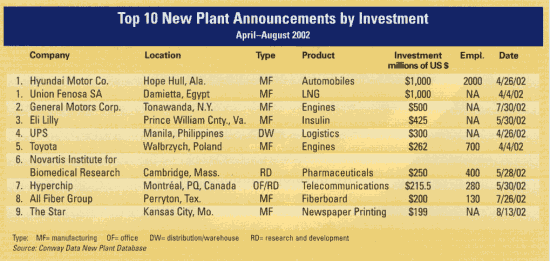





 showed the sharpest climb in that statistic, from 20 percent to 31.8 percent, while Ireland, Japan, Mexico, the Netherlands and Sweden showed slight declines. Regarding special economic zones, the report concludes, “Support for investment in depressed areas could be justified on equity grounds, but tax incentives are generally not the most effective way of doing so, as they do not overcome initial location shortcomings. Measures that lower the overall cost of doing business in a certain region, such as infrastructure development or the provision of training facilities, while comparable both in terms of
showed the sharpest climb in that statistic, from 20 percent to 31.8 percent, while Ireland, Japan, Mexico, the Netherlands and Sweden showed slight declines. Regarding special economic zones, the report concludes, “Support for investment in depressed areas could be justified on equity grounds, but tax incentives are generally not the most effective way of doing so, as they do not overcome initial location shortcomings. Measures that lower the overall cost of doing business in a certain region, such as infrastructure development or the provision of training facilities, while comparable both in terms of  new budget cost and in value for the individual firm, are more transparent and likely to create stronger positive externalities.”
new budget cost and in value for the individual firm, are more transparent and likely to create stronger positive externalities.” Two new projects are the latest steps in a continuous climb by the Asian automotive economy.
Two new projects are the latest steps in a continuous climb by the Asian automotive economy. 

